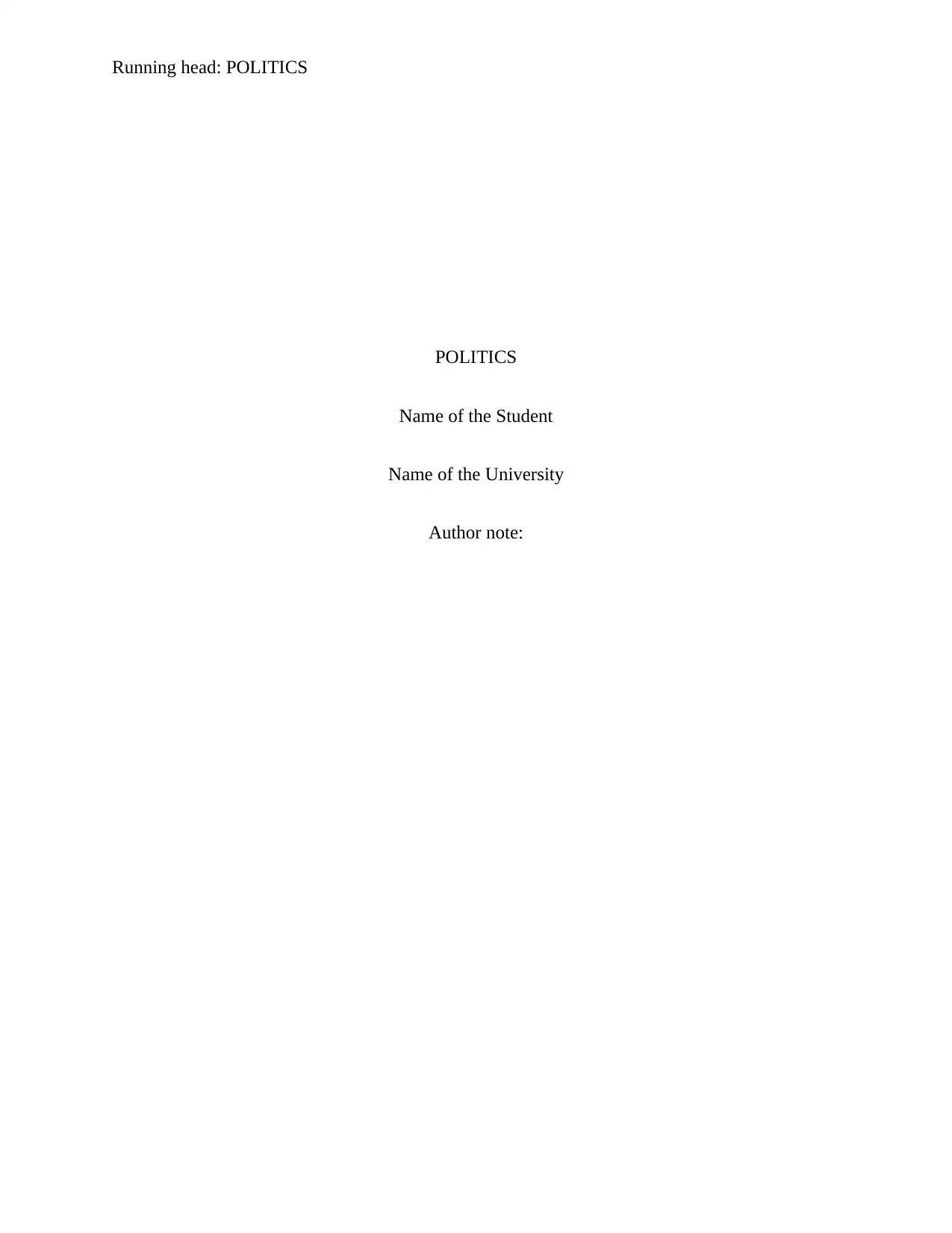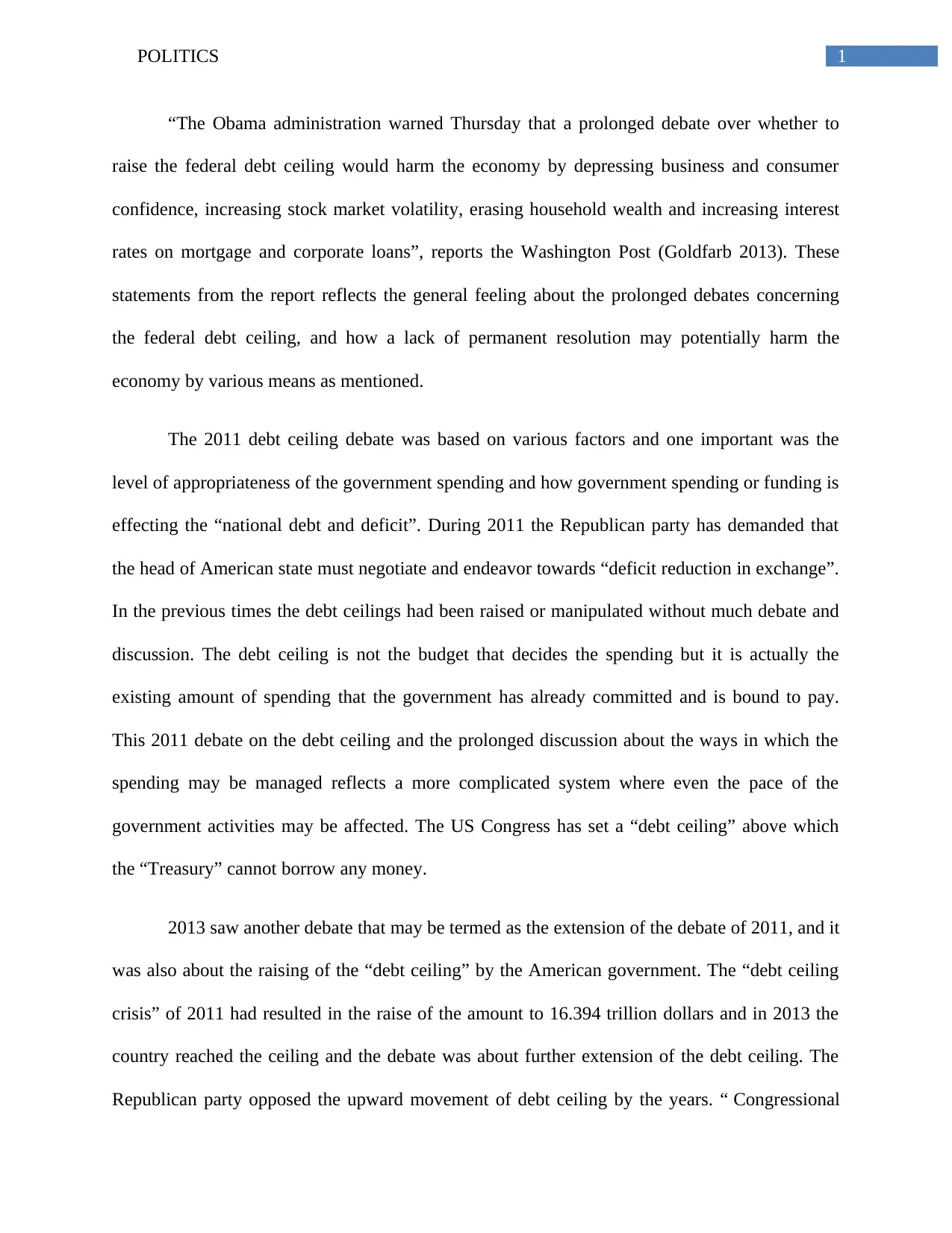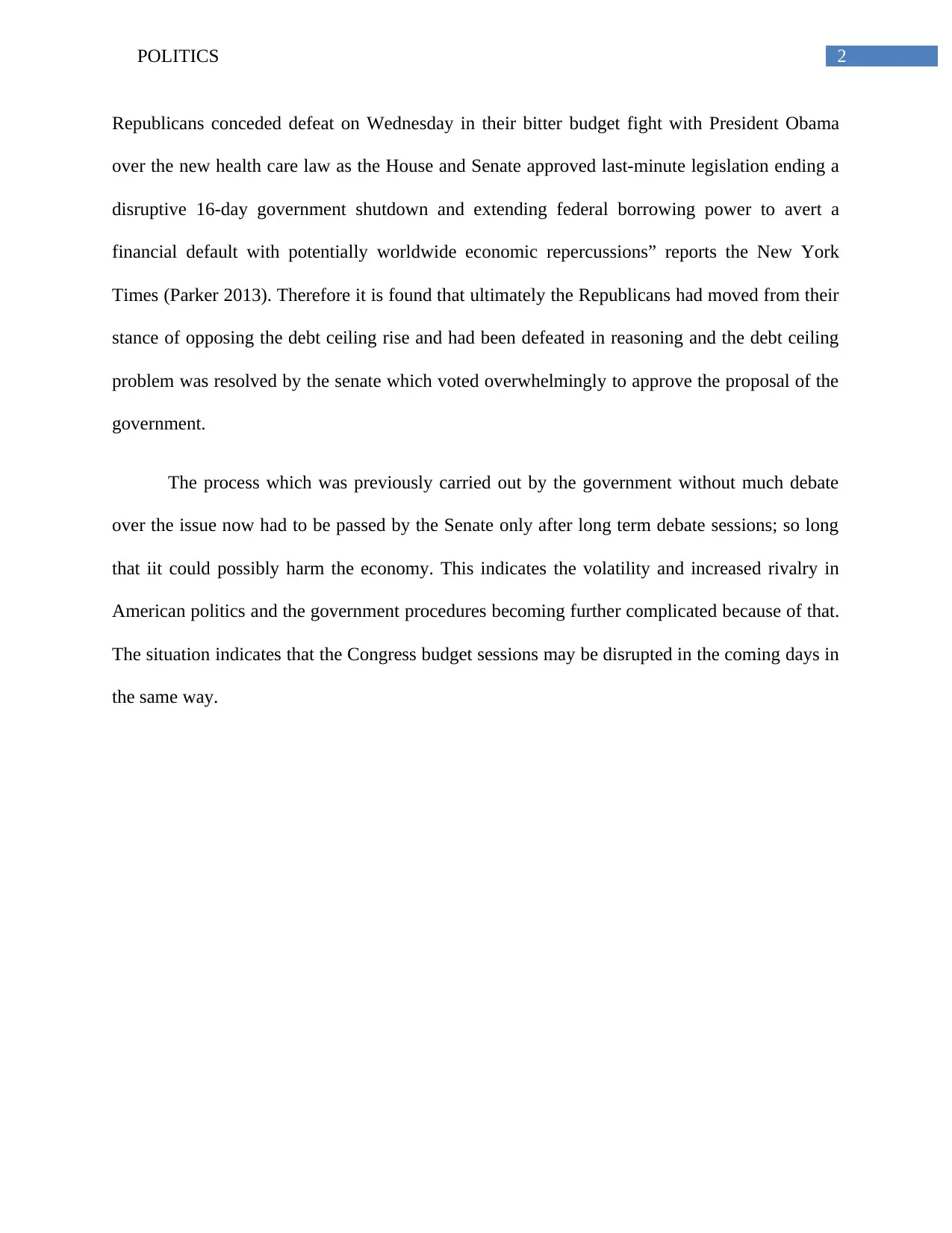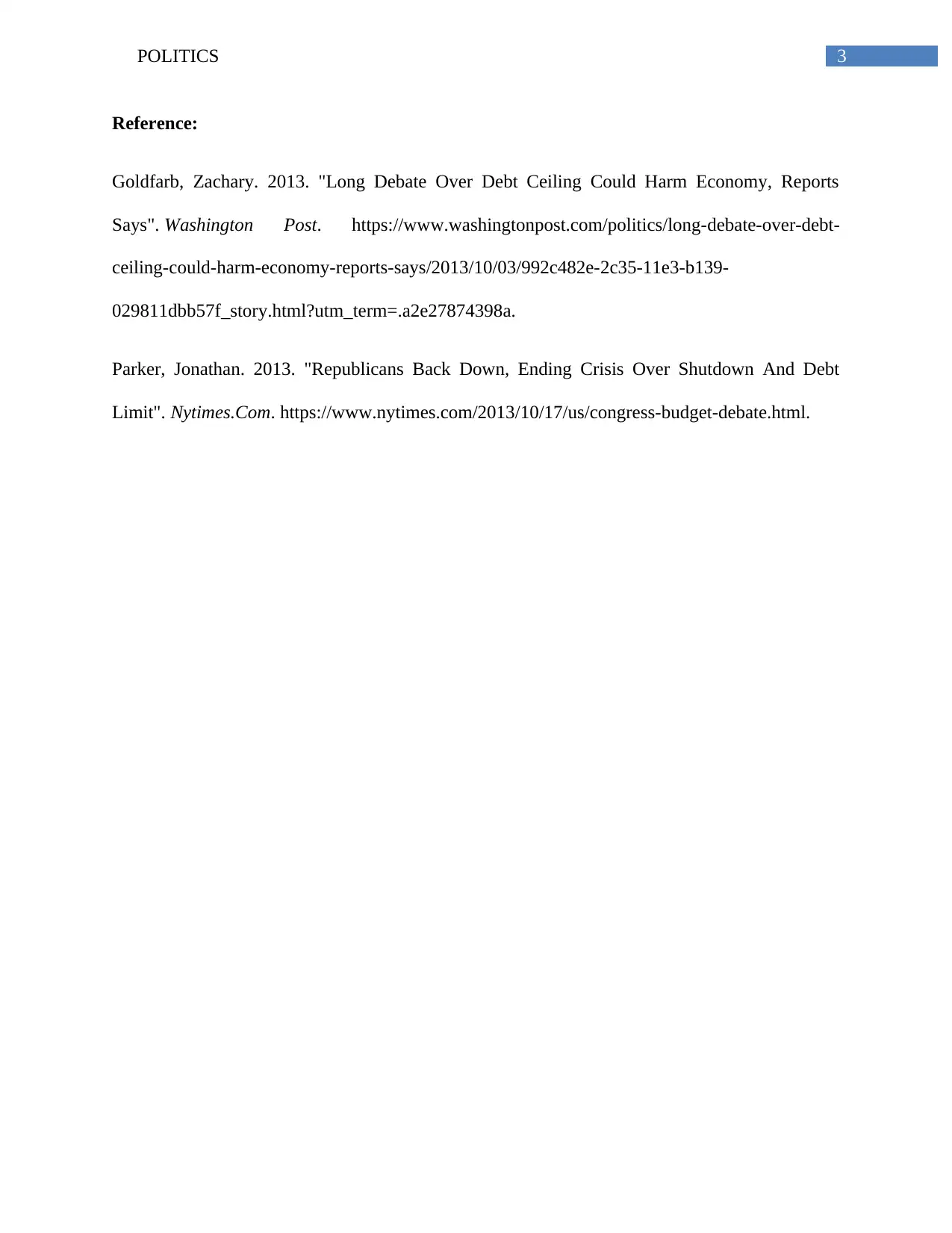Political Science Essay: US Debt Ceiling Debates of 2011 and 2013
VerifiedAdded on 2021/06/15
|4
|620
|26
Essay
AI Summary
This essay examines the US debt ceiling debates of 2011 and 2013, focusing on the political conflicts between the Republican party and the government, particularly concerning government spending and deficit reduction. The essay highlights the debates' potential economic impacts, including concerns about business and consumer confidence, stock market volatility, and interest rates. The author references reports from the Washington Post and the New York Times to illustrate the context and outcomes of these debates, including the eventual resolution of the 2013 crisis. The analysis indicates increased political volatility in the US and the potential disruption of future budget sessions, emphasizing the complexities of government procedures.
1 out of 4





![[object Object]](/_next/static/media/star-bottom.7253800d.svg)